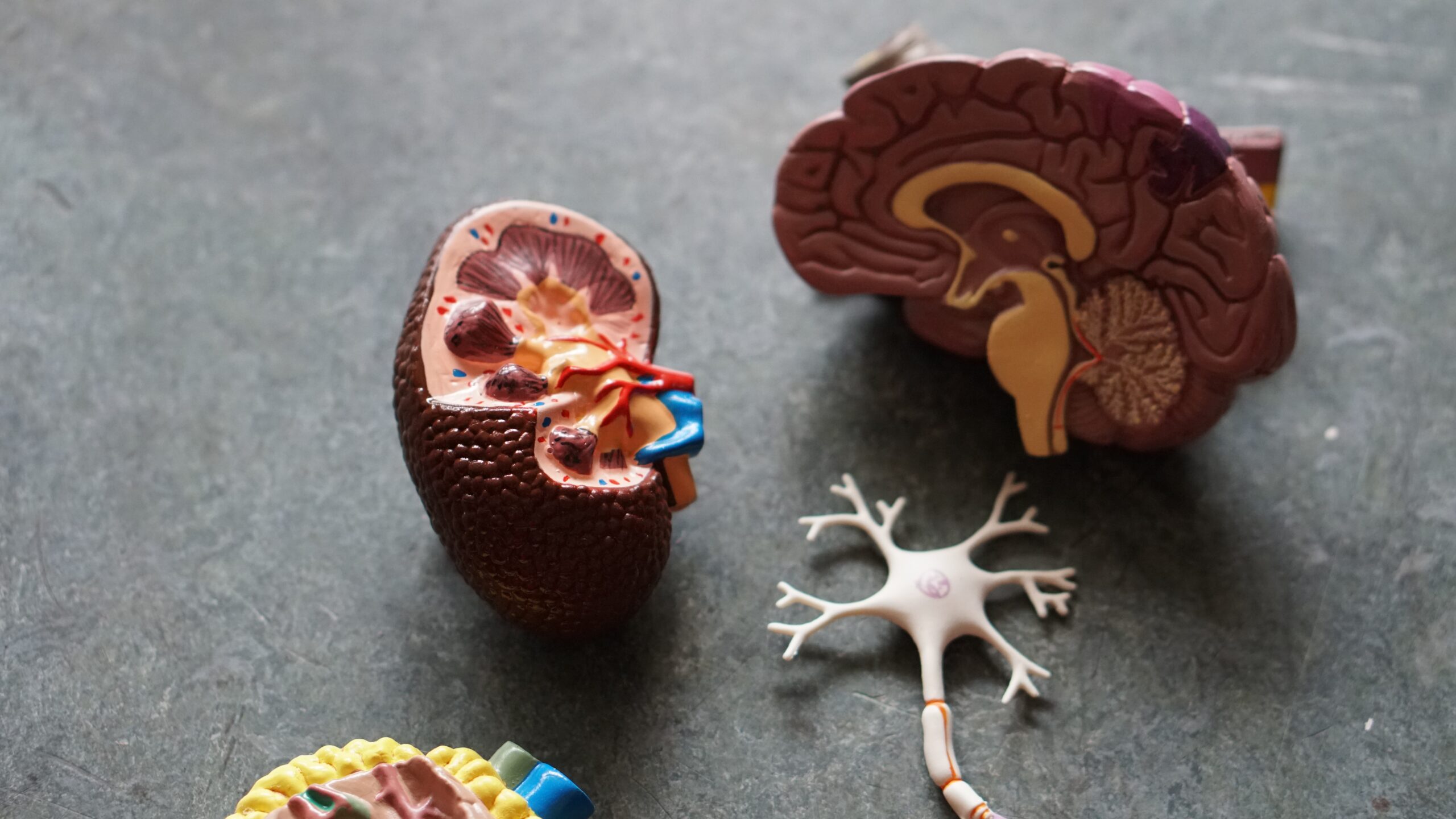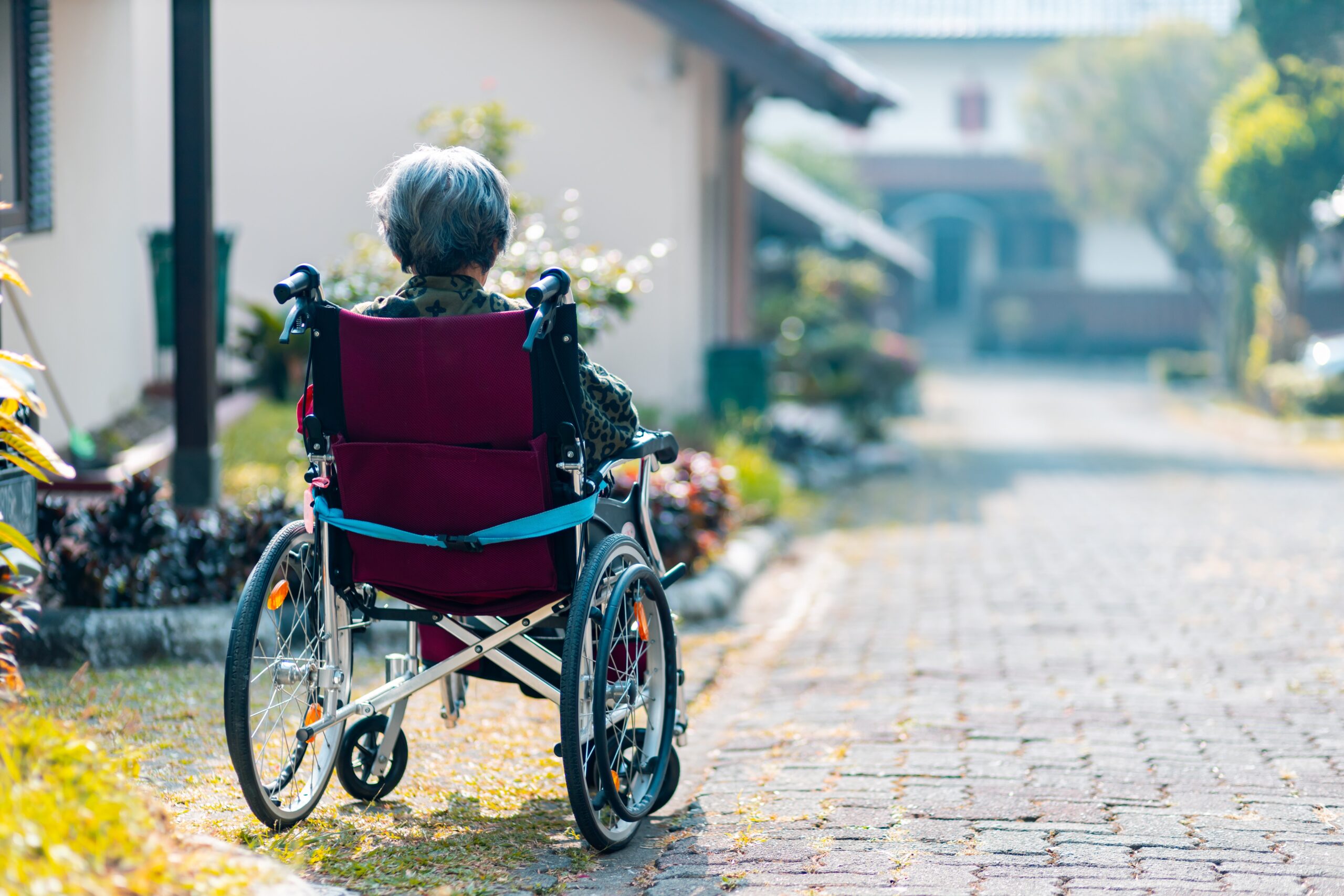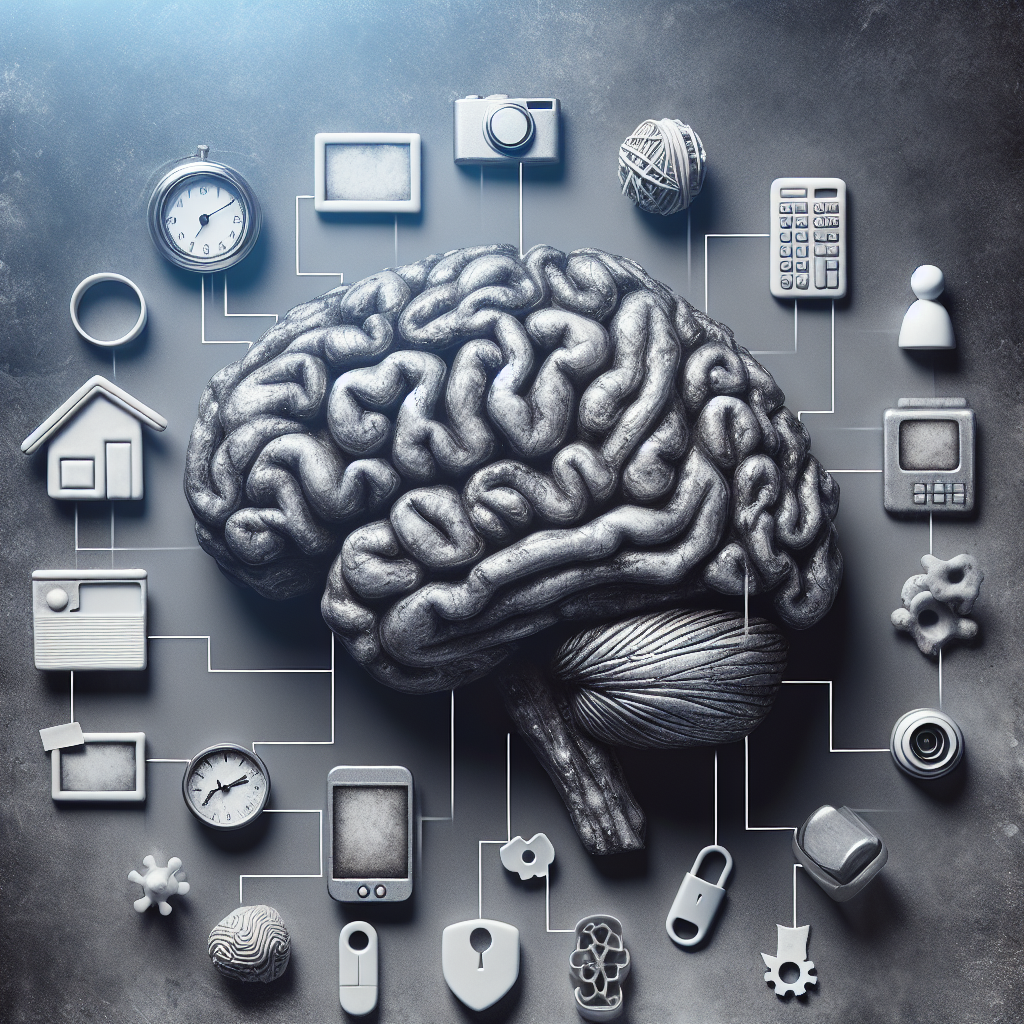Cognitive Decline
Understanding Dementia: A Progressive Disease
Discover what dementia really is and how it affects the brain. Explore its causes, symptoms, treatments, and support systems in this informational post.
Have you ever wondered what dementia really is? Well, in simple terms, it is a progressive disease that affects the brain and leads to a decline in cognitive abilities. The journey of dementia can be a challenging and emotional one, not only for the individuals who are diagnosed with it but also for their loved ones and caregivers. In this article, we will explore the various aspects of dementia, from its causes and symptoms to the available treatments and support systems. So, grab a cup of tea, sit back, and let’s delve into the fascinating world of understanding dementia.
What is Dementia?
Dementia is a progressive disease that primarily affects the brain and impairs cognitive functions such as memory, thinking, language, and reasoning. It is not a specific disease but rather a term used to describe a wide range of symptoms associated with a decline in mental abilities. These symptoms can interfere with a person’s daily life and independence, and may eventually lead to the need for full-time care.
Definition of Dementia
Dementia is characterized by a decline in cognitive function that is severe enough to interfere with a person’s daily activities. This decline is not a normal part of aging and is caused by damage to brain cells. The most common cause of dementia is Alzheimer’s disease, but there are several other causes, including vascular dementia, Lewy body dementia, frontotemporal dementia, and mixed dementia.
Prevalence and Impact of Dementia
Dementia is a global issue that affects millions of people worldwide, both directly as those diagnosed with the condition and indirectly as family members and caregivers. According to the World Health Organization, around 50 million people worldwide have dementia, and this number is expected to triple by 2050. The impact of dementia goes beyond the individual’s cognitive decline, as it places a significant burden on healthcare systems, caregiving resources, and the overall economy.
Causes of Dementia
Dementia can have various causes, each resulting in the progressive decline of cognitive abilities. Understanding the different causes is essential for accurate diagnosis and appropriate management of the condition.
Alzheimer’s Disease
Alzheimer’s disease is the most common cause of dementia, accounting for 60-80% of cases. It is a degenerative brain disease characterized by the accumulation of abnormal protein deposits called beta-amyloid plaques and tau tangles in the brain. These plaques and tangles disrupt the normal functioning of neurons and lead to the progressive loss of memory and cognitive abilities.
Vascular Dementia
Vascular dementia occurs due to damage to blood vessels in the brain, usually resulting from conditions such as stroke or small vessel disease. These blood vessel issues restrict the flow of oxygen and nutrients to the brain, causing cognitive impairment. The symptoms of vascular dementia vary depending on the location and extent of the brain damage, but they often include memory loss, confusion, and difficulty with problem-solving.
Lewy Body Dementia
Lewy body dementia is characterized by the presence of abnormal protein deposits called Lewy bodies in the brain. These Lewy bodies disrupt the brain’s normal functioning and lead to a progressive decline in cognitive abilities. Individuals with Lewy body dementia may experience visual hallucinations, fluctuating alertness, Parkinson’s-like symptoms, and mood and behavior changes.
Frontotemporal Dementia
Frontotemporal dementia refers to a group of disorders characterized by progressive degeneration of the frontal and temporal lobes of the brain, which are responsible for personality, behavior, and language. This form of dementia often affects individuals at a younger age compared to Alzheimer’s disease. Frontotemporal dementia can cause significant changes in personality and behavior, including apathy, impulsiveness, and language difficulties.
Mixed Dementia
Mixed dementia refers to a combination of two or more types of dementia, most commonly Alzheimer’s disease and vascular dementia. The presence of multiple types of dementia can complicate the diagnosis and management of the condition, as symptoms may vary and overlap.
Other Causes of Dementia
In addition to the above-mentioned causes, there are other less common causes of dementia, such as Parkinson’s disease dementia, Huntington’s disease, and HIV-related dementia. These conditions share a common feature of progressive cognitive decline but have specific underlying causes and symptoms.

Risk Factors
While the exact causes of dementia are not entirely understood, certain factors have been identified as increasing the risk of developing the condition. These risk factors can be categorized into several key areas.
Age
Age is the most significant risk factor for dementia. The prevalence of dementia increases significantly with age, with the majority of cases occurring in individuals over the age of 65. However, it is important to note that dementia is not a normal part of the aging process, and not everyone will experience cognitive decline with age.
Family History and Genetics
Having a family history of dementia, particularly in first-degree relatives, increases the risk of developing the condition. Certain rare gene mutations can also significantly increase the risk of developing specific types of dementia, such as early-onset Alzheimer’s disease.
Lifestyle Factors
Certain lifestyle factors can influence the risk of developing dementia. These factors include physical inactivity, poor diet, smoking, excessive alcohol consumption, and obesity. Engaging in regular physical exercise, maintaining a healthy and balanced diet, not smoking, limiting alcohol intake, and maintaining a healthy weight are all important in reducing the risk of developing dementia.
Cardiovascular Health
Cardiovascular health plays a crucial role in the development of dementia, particularly vascular dementia. Conditions such as high blood pressure, high cholesterol, diabetes, obesity, and heart disease can increase the risk of vascular dementia by contributing to the damage of blood vessels in the brain. Managing these conditions through lifestyle modifications and appropriate medical care can help reduce the risk.
Head Injuries
A history of head injuries, particularly traumatic brain injuries, has been linked to an increased risk of developing dementia later in life. It is essential to take measures to prevent head injuries, such as wearing protective headgear during sports and using seat belts and appropriate restraints in vehicles.
Symptoms and Stages
Dementia progresses in stages, with each stage characterized by a specific set of symptoms and levels of cognitive decline. Recognizing the symptoms of dementia is crucial for early detection and intervention.
Early Symptoms of Dementia
In the early stages, individuals may experience subtle changes in cognition that may be mistaken for normal age-related forgetfulness. Common early symptoms include difficulty remembering recent events or conversations, misplacing items, difficulty finding words, and decreased ability to plan or organize.
Mild Cognitive Impairment (MCI)
Mild Cognitive Impairment (MCI) is considered a transitional stage between normal aging and the more severe decline seen in dementia. People with MCI have more noticeable cognitive deficits than those associated with normal aging but do not meet the criteria for a dementia diagnosis. MCI may or may not progress to dementia and requires careful monitoring.
Mild Dementia
As dementia progresses, individuals may experience more significant memory loss, confusion, and difficulties with problem-solving and decision-making. They may find it increasingly challenging to perform complex tasks, manage finances, or remember recent events or details about their own lives.
Moderate Dementia
In the moderate stage of dementia, individuals may require assistance with daily activities such as dressing, bathing, and eating. They may experience increased memory loss and confusion, have difficulty recognizing familiar faces and places, and exhibit changes in behavior and personality. Wandering and agitation can also become more common during this stage.
Severe Dementia
In the severe stage of dementia, individuals lose their ability to communicate coherently, recognize loved ones, and perform basic self-care tasks. They may become completely dependent on others for all aspects of their daily care and are at an increased risk of developing infections and other medical complications.

Diagnosis and Evaluation
Accurate diagnosis and evaluation are essential for correctly identifying and managing dementia. A comprehensive assessment involves various medical and cognitive tests.
Medical History and Cognitive Testing
The healthcare provider will typically begin with a thorough medical history review to identify any potential underlying medical conditions that may contribute to cognitive decline. Cognitive testing, such as the Mini-Mental State Examination (MMSE), may be performed to assess memory, language, attention, and other cognitive functions.
Physical and Neurological Examination
A physical examination can help identify any underlying health conditions that may contribute to dementia symptoms. Additionally, a neurological examination may be conducted to assess reflexes, coordination, and other neurologic functions.
Brain Imaging and Laboratory Tests
Brain imaging techniques such as magnetic resonance imaging (MRI) or computed tomography (CT) scans may be used to identify brain abnormalities, rule out other potential causes of cognitive decline, and determine the extent of brain damage. Laboratory tests, including blood tests and cerebrospinal fluid analysis, may also be ordered to check for underlying medical conditions and biomarkers associated with certain types of dementia.
Assessing Daily Functioning
Assessing an individual’s ability to perform daily activities, known as Activities of Daily Living (ADLs), is crucial in evaluating the impact of dementia on their functional abilities. This assessment may involve observing the individual’s ability to dress, bathe, eat, use the toilet, and perform other essential tasks.
Support from Caregivers and Family
Family members and caregivers play a vital role in the diagnostic process by providing information about the individual’s changes in behavior, cognition, and functioning. Their input, along with the healthcare provider’s assessment, can contribute to a more accurate diagnosis and evaluation.
Treatment and Management
While there is currently no cure for dementia, several interventions can help manage symptoms, slow down disease progression, and provide support to individuals and their caregivers.
Pharmacological Interventions
There are certain medications available that can help manage some symptoms of dementia, particularly in the early to moderate stages. These medications, such as cholinesterase inhibitors or memantine, can help improve cognition, memory, and behavior in some individuals. However, it is essential to consult with a healthcare professional before starting any medication, as they may have side effects and varying effectiveness depending on the type and stage of dementia.
Non-Pharmacological Interventions
Non-pharmacological interventions focus on providing support and enhancing the quality of life for individuals with dementia. These interventions can include cognitive stimulation therapy, reality orientation therapy, reminiscence therapy, music therapy, and physical exercise programs. These interventions aim to engage individuals, improve social interactions, maintain cognitive functions, and reduce behavioral symptoms.
Supportive Care and Symptom Management
Supportive care comprises a range of services aimed at improving an individual’s quality of life and managing associated symptoms. This may involve assistance with daily activities, personal care, and mobility, as well as providing emotional support and creating a safe and supportive environment. Symptom management strategies may include addressing sleep disturbances, managing aggression and agitation, and addressing any underlying medical conditions that may worsen cognitive symptoms.
Caregiver Education and Support
Caring for someone with dementia can be challenging, both emotionally and physically. Education and support programs for caregivers are essential to equip them with the knowledge and skills needed to provide the best possible care. These programs may include techniques for effective communication and behavior management, self-care strategies, and information about available resources and support services.
Planning for the Future
Planning for the future is essential for individuals with dementia and their families. This includes making legal and financial arrangements, such as creating a power of attorney and setting up advance directives. It also involves discussing long-term care options, such as home care, assisted living, or memory care facilities, to ensure appropriate care is in place as the disease progresses.

Impact on Daily Life
Dementia has a significant impact on a person’s daily life and can affect various aspects of their functioning and relationships.
Challenges with Memory and Language
Memory loss is one of the hallmark symptoms of dementia. Individuals may have difficulty recalling recent events, conversations, or names of people they know well. As the disease progresses, language difficulties may also arise, making it challenging to find the right words, follow conversations, or express themselves clearly.
Changes in Mood and Behavior
Dementia can cause changes in mood and behavior, which can vary based on the type and stage of dementia. Individuals may experience increased agitation, anxiety, depression, irritability, or apathy. These changes can impact their relationships and overall well-being.
Difficulty with Activities of Daily Living
As dementia progresses, basic activities of daily living become increasingly challenging. Individuals may struggle with dressing, bathing, grooming, eating, and using the toilet. Assistance and modifications to the environment may be necessary to promote independence while ensuring safety.
Social Isolation and Relationship Impact
Dementia can lead to social isolation, as individuals may withdraw from social activities due to difficulties with communication, memory loss, and changes in behavior. Maintaining social connections and support systems is crucial for the overall well-being of individuals with dementia and their caregivers.
Support and Resources
Various support services and resources are available to assist individuals with dementia and their caregivers.
Memory Clinics and Specialist Services
Memory clinics and specialist services provide comprehensive assessments and support for individuals with memory concerns and dementia. These clinics may offer diagnostic evaluations, ongoing monitoring, access to specialized healthcare professionals, and information about available resources and support services.
Support Groups and Counseling
Support groups and counseling services offer individuals and caregivers the opportunity to share their experiences, gain emotional support, and learn coping strategies from others facing similar challenges. These groups can provide valuable insights, reduce feelings of isolation, and offer a supportive environment for individuals and caregivers.
Financial and Legal Assistance
Dementia can place a considerable financial burden on individuals and their families. Financial and legal assistance programs exist to help navigate financial matters, such as insurance, retirement benefits, and accessing public assistance programs. Legal assistance may also be sought for creating or updating legal documents, such as wills, powers of attorney, and advance directives.
Assistive Technologies
Assistive technologies can help individuals with dementia maintain their independence and safety. These technologies may include reminder systems, home monitoring systems, medication management systems, and GPS tracking devices. Consultation with healthcare professionals and specialists can help determine the most appropriate assistive technologies for individual needs.
Respite Care and Long-Term Care Facilities
Respite care services offer temporary relief to caregivers by providing short-term care for individuals with dementia. This allows caregivers to take a break, attend to their own needs, or address other responsibilities without compromising the well-being of the person with dementia. Long-term care facilities, such as nursing homes or memory care units, provide round-the-clock care for individuals with advanced dementia who can no longer be cared for at home.
Research and Advances
Research plays a vital role in advancing our understanding of dementia, improving treatments, and developing strategies for prevention and support.
Current Research in Understanding Dementia
Scientists and researchers worldwide are actively conducting studies to better understand the underlying causes and mechanisms of dementia. This research focuses on identifying biomarkers, exploring genetic and environmental risk factors, and investigating novel treatment approaches.
Advancements in Treatment and Prevention
Advancements in treatment and prevention are ongoing areas of study in the field of dementia. Researchers are investigating potential new drug therapies, including immunotherapies and disease-modifying drugs. Lifestyle interventions, such as physical exercise, cognitive training, and managing cardiovascular risk factors, are also being explored for their potential in reducing the risk and slowing the progression of dementia.
Developing Dementia-Friendly Communities
Efforts are being made globally to create dementia-friendly communities that support and accommodate individuals with dementia and their caregivers. These initiatives aim to raise awareness, reduce stigma, improve accessibility, and provide specialized services and supports to enhance the quality of life for individuals living with dementia.
Conclusion
Dementia is an increasingly prevalent and impactful condition that affects individuals, families, and communities worldwide. Understanding the causes, symptoms, and management of dementia is crucial for early detection, accurate diagnosis, and appropriate support. By increasing awareness, investing in research, and fostering dementia-friendly communities, we can help improve the lives of individuals living with this progressive disease and their caregivers. Early detection, intervention, and continued support play a vital role in managing dementia and maintaining the highest possible quality of life for individuals affected by this challenging condition.

















